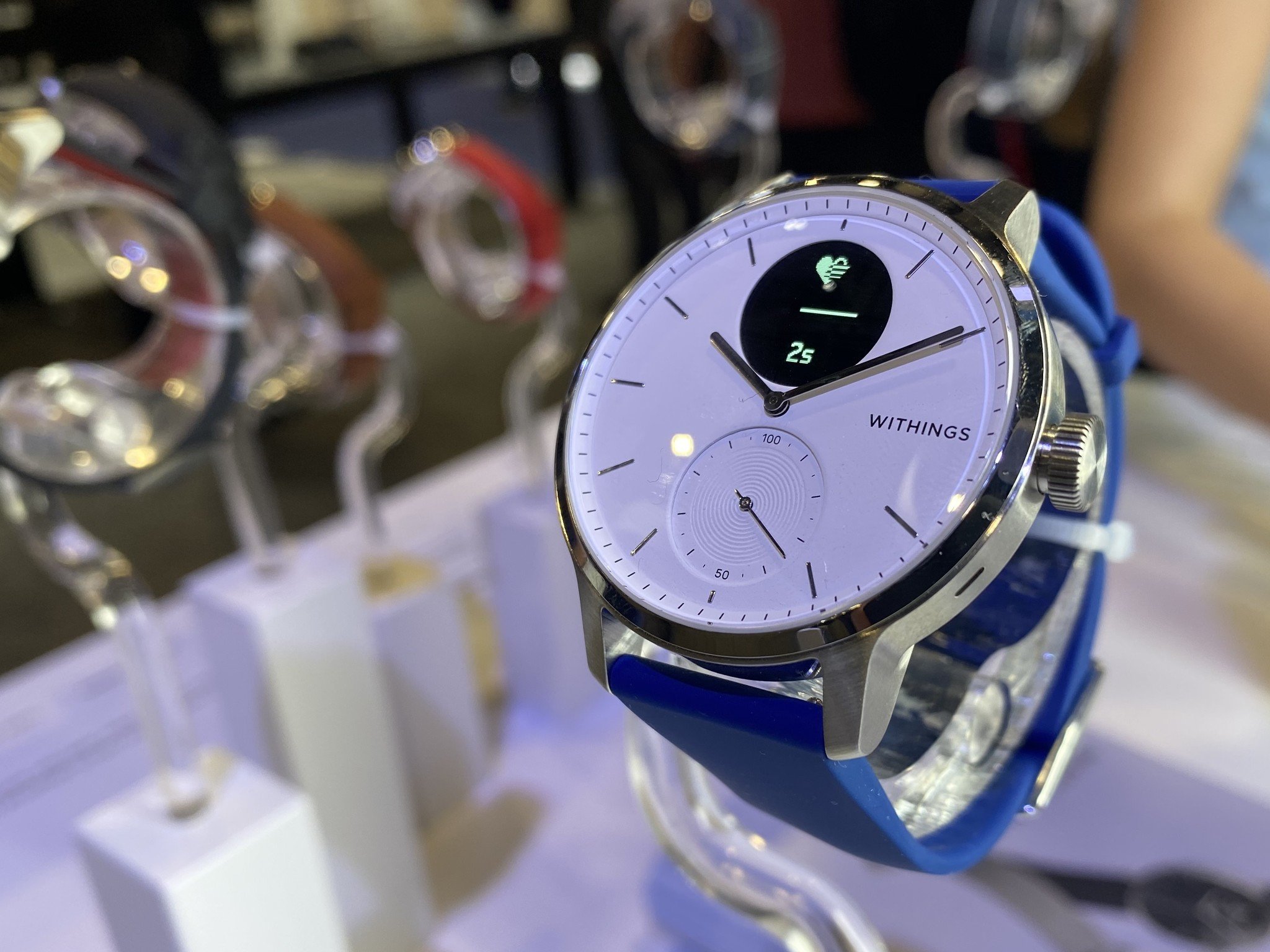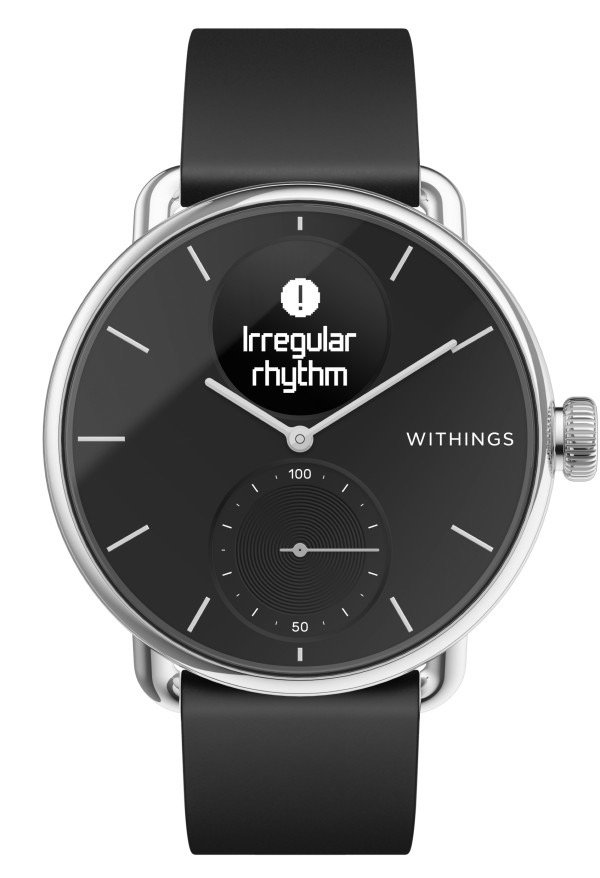It's not just sleep tracking. It's sleep apnea detection.
At CES 2020, Withings launched its latest high-end hybrid smartwatch, the ScanWatch. Using a similar design as Withings Steel HR, the ScanWatch has a round watch design with an analogue face. In the top center of the face, there is a PMOLED display that will show text messages and notifications, as well as, your heart rate, steps walked, calories burned, and more. It's biggest new feature is an oxygen saturation sensor, which combined with a dedicated sleep tracker, can help potentially identify if you have symptoms of sleep apnea.
Sleep apnea is a sleeping disorder that happens when your breathing stops and starts while you sleep. People who suffer from sleep apnea often don't even know it. Because they're asleep (or at least they think they're asleep). Sleep apnea can cause sufferers to feel tired, even after sleeping a full night, and can potentially be dangerous if sufferers struggle to breath while asleep.
Using a light sensor on the backside of the watch case, ScanWatch scans the changes in your blood color to determine your oxygen saturation level in real time. When worn nightly, the watch keeps track of your movement during sleep and your oxygen saturation level. If you regularly show signs of low blood oxygen levels, ScanWatch will let you know. You can take this information to your doctor to determine whether you should be tested for sleep apnea.
This scan is happening in the background. You don't have to set up any special schedule or activate a scan. All you have to do is wear the ScanWatch while you sleep. I know a lot of people that would really like a feature like this, and some that would benefit from a bit of "home tracking" for potential sleep apnea. My mom was recently diagnosed with sleep apnea and the only reason she went to the doctor in the first place was because I noticed, while staying in the same hotel room with her on vacation, that her breathing sounded labored while she slept. People that have the ScanWatch won't have to wait until someone else points out to them that they sound like they've stopped breathing while asleep.
With the heart rate sensor, ScanWatch can also keep track of your heart beats and give you a gentle nudge if it detects anything out of the ordinary, like a heartbeat that is unusually low or high. Manually triggering an ECG reading by selecting the feature and then placing your fingers on two opposite sides of the watch case where the sensors sit will provide additional information, such as whether atrial fibrillation may be detected. This information is sent to the Withings HealtH Mate app, which can be shared with your doctor to help decide whether you need additional treatment.
Early detection of heart complications can literally be life saving. I've mentioned on multiple occasions that I think the ECG monitor on the Apple Watch is one of this decade's best technological advancements, and I love that Withings offers a platform-agnostic ECG reader.
In addition to the new blood saturation sensor, Withings has updated the OLED screen with a slightly larger display and better pixel density. Even at a glance, it's pretty easy to see what's on the screen without needing to raise your wrist up to your face.
ScanWatch uses sapphire glass and has a rechargeable battery life of up to 30 day (that OLED screen doesn't need a lot of juice). It's also waterproof up to 50 meters and uses industry standard band connectors, so you can use any watch band you want, not just ones that fit specific smart watches.
It comes in 38 or 42mm with a black or white watch face. It's currently running through FDA certification, but should be ready for public launch sometime around early fall. The 38mm model will cost $249 and the 42mm model will cost $299.
Withings ScanWatch
If you don't need a full smart watch, and want to keep track of your sleeping habits and heart health, the ScanWatch looks like a normal watch but offers some seriously useful health tracking features.
from iMore - The #1 iPhone, iPad, and iPod touch blog https://ift.tt/36uhpb8
via IFTTT


No comments:
Post a Comment